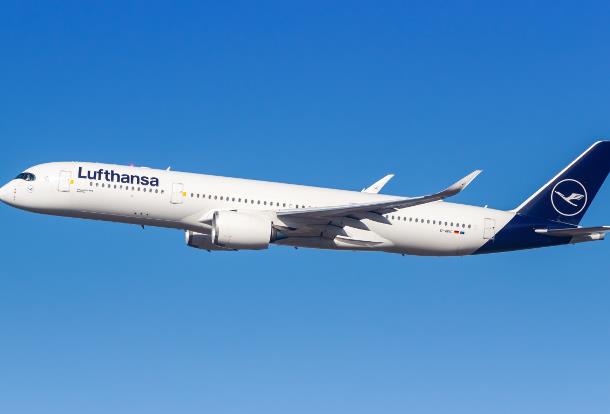
Smart hotel solution provider Xiezhu receives USD 45.6 million in financing
>> Intelligent hotel solution provider Xiezhu Technology raised 300 million yuan (USD 45.6 million) in its Series B financing round this month. Led by Addor Capital, the round was also backed by Qingdao Haikong Tiancheng Fund and existing investor SR Capital, which also invested in the company’s Series A financing. Styling itself as an “AIoT (Artificial Intelligence of Things) company”, Xiezhu said it is committed to the R&D of 5G applications, AI chips, the Internet of Things, big data, and cloud technology.
Chinese consumers are now more open to travel, but outbound caution stays
>> Chinese consumers are now more likely to state their willingness to travel than last September, according to the latest findings in Dragon Trail Research’s Chinese Consumer Travel Sentiment Report. But when it comes to outbound travel, caution and uncertainty define market sentiment. Asia remains the first-choice global region for outbound travel, followed by Europe, with North America in third place – despite the region’s poor image for safety.
State-owned travel conglomerate CTII posts 56% drop in revenue
>> China Travel International Investment Hong Kong (CTII), a Chinese state-controlled travel conglomerate listed in Hong Kong, said its revenue dropped 56.06% to HK$ 1,967 million (USD 253 million) in 2020. Loss attributable to shareholders was HK$ 391 million last year, compared with profit of HK$387 million in the previous year. CTII said it will continue to focus on building a “first-class tourist destination investment and operation service provider” and become industry benchmarks in terms of scenery, content and experience.
Singapore mulls over launch of air travel bubble with Hong Kong
>> Singapore's Minister for Transport Ong Ye Kung said Monday that the city-state has received a proposal from China's Hong Kong Special Administrative Region to re-open borders safely, saying it is studying the situation. Singapore and Hong Kong agreed to launch designated flights under an air travel bubble agreement in November 2020 but the launch was later deferred due to worsened epidemic situation in Hong Kong.
Hong Kong to shorten 21-day quarantine for lower-risk travelers
>> Hong Kong plans to slash its mandatory quarantine period from 21 days to 14 days for some vaccinated travelers and reopen to low-risk tourists. For the first time since borders closed in March 2020, the city will reopen to low-risk travelers from Australia, New Zealand, and Singapore who are not Hong Kong residents.
Hong Kong Airlines to trial "Travel Pass" in support of travel recovery
>> Hong Kong Airlines will trial a digital health passport as part of the carrier's ongoing contributions towards the safe reopening of borders and international travel. Developed by the International Air Transport Association (IATA), a globally-recognised trade organisation and advocate for airlines, Travel Pass will provide travellers with easy access to COVID-19 entry requirements for their destination and accredited testing centres at their point of departure. The app also enables passengers to link their COVID-19 test results to a digital version of their passport created through the app.
China looks to slow growth of money-losing high-speed rail
>> A Caixin report noted that China is introducing guidelines to limit new high-speed rail construction along underused routes, as it seeks to prevent projects that give short-term boosts to local economies, but add to regional governments’ already huge debt piles. Annual railway investment, which often reflects government enthusiasm for infrastructure investment, dropped to 781.9 billion yuan (USD 120.7 billion) last year, falling below 800 billion yuan for the first time since 2013, according to a report of South China Morning Post citing data from the annual China State Railway Group conference earlier this year.
China's top airlines post wider Q4 losses on asset impairments
>> China’s three biggest airlines reported weaker results for the final quarter of 2020 on asset impairments though some analysts still expect a rebound this year as domestic travel rises. China Southern Airlines fell to a fourth-quarter net loss of RMB 3.38 billion (USD 514.37 million) after a third-quarter profit. Beijing-based Air China, the country’s flag carrier, said its net loss widened to RMB 4.3 billion in the fourth quarter from RMB 671 million in the third, taking its full-year loss to RMB 14.4 billion. A gradual recovery in international travel in the second half should mean net profits for the top three carriers, according to analysts at Shenzhen-based Guoxin Securities.
Didi mulls new funding for its autonomous driving arm
>> Chinese ride-hailing giant Didi Chuxing is launching a fundraising spree for its autonomous driving subsidiary in the hope of earning a position in a red-hot industry. Didi Autonomous Driving is planning to raise as much as $500 million at a valuation of nearly $6 billion.
Oman, China hold discussions on investments, tourism
>> The governments of the Sultanate and China held a session of political discussions at the Foreign Ministry on Monday. The two sides reaffirmed their support to measures of advancing investments and tourism exchange within the context of the Chinese “Belt and Road Initiative” and with a view to realising mutual benefits for both countries.




